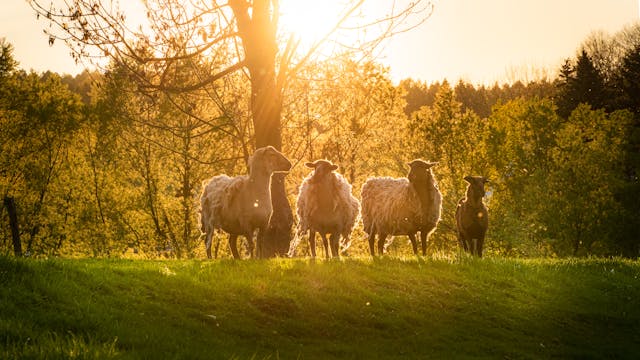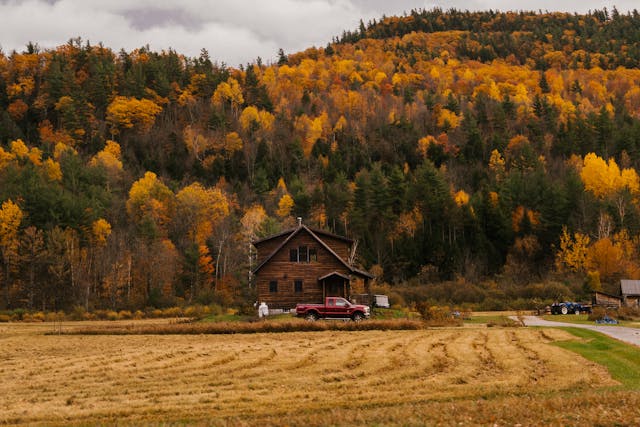
- Rural living offers peace, quiet, and a connection to nature, significantly enhancing mental health and relaxation.
- The affordability of rural areas, including lower housing and living costs, makes financial goals more attainable.
- Strong community spirit and neighborly bonds in rural settings foster a deep sense of belonging and support.
- Access to outdoor recreation and a lifestyle of self-sufficiency in rural areas promote physical health and sustainability.
Are you tired of the hustle and bustle of city life? Do you dream of wide open spaces, fresh air, and a slower pace of living? If so, moving to a rural area may be just what you need. Rural living offers a myriad of benefits that can improve your quality of life and overall well-being. This blog will explore the advantages of rural area living and provide tips for those looking to make the move to the countryside.
Peace and Quiet
One of the biggest perks of living in a rural area is the peace and quiet that comes with it. Say goodbye to traffic noise, loud neighbors, and constant sirens. In a rural setting, you can enjoy the sounds of nature – birds chirping, leaves rustling in the wind, and the occasional mooing of cows in the distance. This tranquility can do wonders for your mental health and stress levels.
Affordability
Another benefit of living in a rural area is affordability. Generally speaking, housing costs are lower in rural areas compared to urban centers. You can get more bang for your buck when it comes to buying or renting a home in the countryside. Additionally, everyday expenses such as groceries and utilities tend to be cheaper in rural areas.
You can also get a USDA loan if you plan on purchasing a home in a rural area, which offers 100% financing and lower interest rates compared to traditional loans. This can make homeownership more achievable for those on a tight budget. A USDA loan also has no down payment requirement, making it an attractive option for first-time homebuyers.
Community Connection
Rural communities are known for their strong sense of community spirit. Neighbors look out for each other, come together for local events and festivals, and build lasting relationships. If you value close-knit connections with others, moving to a rural area could provide you with a sense of belonging that may be lacking in urban settings.
Outdoor Recreation

Living in a rural area means having easy access to outdoor recreational activities such as hiking, fishing, camping, and more. With vast expanses of natural beauty right at your doorstep, staying active and enjoying nature becomes second nature. Whether you prefer strolling through meadows or kayaking down rivers, there is no shortage of opportunities for outdoor fun in rural areas.
Self-Sufficiency
Finally, rural living often encourages self-sufficiency and sustainability. Embracing a simpler way of life can lead to greater independence and reduced reliance on outside sources. Here are four critical aspects of self-sufficiency that are often highlighted in rural living:
Growing Your Own Food
Living in a rural area often means having more land available for gardening and growing crops. This can lead to healthier, fresher produce and a stronger connection to where your food comes from.
Raising Animals

Many rural communities have space for raising livestock such as chickens, goats, or cows. This can provide opportunities for sourcing your own meat and dairy products. You may also find it rewarding to care for and bond with your own animals.
Using Renewable Energy
Rural areas also tend to have more space for renewable energy sources such as solar panels or wind turbines. This can lead to reduced utility costs and a smaller carbon footprint. You may also feel a greater sense of control over your own energy consumption.
Bartering and Trading
In rural communities, bartering and trading are often common practices. This can include trading goods or services with others in the community, further promoting self-sufficiency, and reducing reliance on outside sources.
Self-sufficiency is not just about being self-reliant but also about building stronger connections within your community and fostering a sense of interdependence. In rural areas, this can often lead to tighter-knit communities where individuals rely on each other for support and collaboration.
Transitioning from city to rural living brings a treasure trove of benefits that cater to both your physical and mental well-being. From the serene quietude of nature, affordability, and stronger community bonds to the joy of outdoor activities and the fulfillment of a self-sufficient lifestyle, rural living offers a holistic approach to a happier, healthier life. Whether you’re seeking peace, a deeper connection with the environment, or a more sustainable way of life, the countryside awaits you with open arms, ready to transform your dream into reality.
